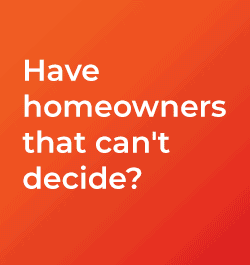The rise of green-blue roofs

By Hannah Ford.
Amsterdam’s approach to urban sustainability.
Many countries are beginning to turn to green solutions especially in major metropolitan cities. Green roofs are considered a great alternative to urban infrastructure. A green roof is specially designed with specific plants to grow on the structures. However, while a green roof can soak up some rainwater to hydrate the plants it is not enough to use the water. The alternative that has been proposed and slowly adopted are blue-green roofs. These are specifically designed to capture rainwater while still implementing the green roof practice of planting foliage around the roofs. Blue-green roofs are infrastructure that can capture water and distribute it to residents. These roofs collect water for daily usage like watering plants and flushing toilets.
Amsterdam has begun efforts to integrate blue-green roofs in their building practices. Across the city, there are approximately 148,000 square feet of blue-green roofs installed. These roofs can cool the top floors of buildings, as these floors are notoriously the hottest. If indigenous plants are picked to cover the top of the roof, this can help wildlife flourish and cater to the native pollinating insects.

The newest efforts in Amsterdam have been brought on by the RESILIO Project, which stands for resilience network of smart, innovative, climate-adaptive rooftops. They have added 100,000 square feet of blue-green roofs including some over social housing complexes. RESILIO has several partners such as the City of Amsterdam, the Hogeschool van Amsterdam and Vrije Universiteit. This initiative was started in response to the climate changes we are experiencing. One of those changes is that floods are becoming a larger problem and affecting more people. Blue-green roofs are a part of the solution. They assist with heat, energy consumption and water supply. When looking at the program used in this project, it shows potential to significantly reduce flooding. “You can look at historical flood patterns and then you can do simulations that will help you understand. If I could take this much capacity out of the drainage network, when the storm comes, I’m going reduce flooding by 10, 15, 20%,” Amy Bunszel, Autodesk’s executive vice-president of architecture, engineering and construction design solutions, told Wired.
There are a few drawbacks to blue-green roofs. They aren’t currently compatible with all roof types. These structures tend to be very heavy while storing rainwater and the roofs must be able to withstand a considerable weight.
Blue-green roofs are a part of a larger initiative to bring in more green spaces called “sponge cities.”. Planners place more blue-green roofs around cities to soak up water from downpours. While the water can be reused, blue-green roofs also reduce flooding which is becoming an increasing issue. This new urban design strategy originated in 2013 in China. The architect Kongjian Yu pioneered the concept of a sponge city. “Whenever rain falls, we retain as much as possible,” Kongjian Yu told Wired. “We slow down the flow and let the earth take in the water. A sponge city will become an adaptive city, a resilient water system, a porous landscape.”
A recent study found that if the United States began to incorporate blue-green roofs, they had the potential to save billions of gallons of water daily. The blue-green roofs could even provide owners a tax break, used as an incentive for homeowners to install a system. Previously, U.S. cities like Los Angeles have provided tax breaks on similar initiatives to develop gardens.
There is great potential for these blue-green roofs. As more homeowners and building owners adopt this practice it will become less expensive. Now, we should be working to increase the popularity of blue-green roofs to reap the major benefits.
Original image source: The Guardian
Stay up to date with the latest industry news when you sign up for the Coffee Shop eNews.
About Hannah
Hannah Ford is a content intern for the Coffee Shops. She is a student at Oregon State University pursuing her bachelor of science in marketing. In her free time she enjoys reading, art, music and trying new restaurants.























Comments
Leave a Reply
Have an account? Login to leave a comment!
Sign In